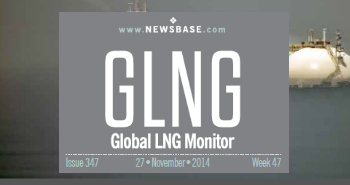Iranian president locks in gas pipeline deal with Russia
_1.jpg)
Iranian President Masoud Pezeshkian hailed a gas supply deal with Russia while meeting Russian Prime Minister Mikhail Mishustin in Tehran on September 30.
Pezeshkian also took the opportunity to hit out at Israel for “creating tensions” for its attacks on Lebanon this week that culminated in the killing of Hezbollah leader Hassan Nasrallah on September 28. Russia and Iran condemned the Israeli assassination of Nasrallah in the attack on Hezbollah’s central command headquarters in Beirut's southern suburbs, which also killed several other senior officials in the group.
Pezeshkian said the long-term gas agreement agreed earlier between the two countries was an “excellent example of cooperation” between Tehran and Moscow. Earlier, the National Iranian Gas Co. (NIGC) and Russia’s energy giant Gazprom signed a 30-year-long deal in June to bring Russian gas to Iran as part of a swap deal.
Under this "strategic agreement," Iran will receive 300mn cubic metres of Russian gas per day through a new pipeline that Moscow plans to build under the Caspian Sea in direct competition with Azerbaijani and Turkem plans for an east-west pipeline.
Pezeshkian said the gas deal would help Iran become a “regional gas hub,” serving both nations’ interests and promoting sustainable development and economic growth.
“We believe that if the important joint projects of Iran and Russia are implemented, they will create significant capacities for both countries in offsetting cruel sanctions,” the Iranian president.
Iran has been subject to US sanctions over a series of issues, including its nuclear programme, since 2018, while Western sanctions targeted Russia after it invaded Ukraine in 2022.
During negotiations in Tehran, Mishustin discussed relations and prospects for economic cooperation with the Iranian leadership, according to Deputy Prime Minister Alexei Overchuk.
"The bilateral agenda issues discussed during the official visit also concern the relations between Russia and Iran, as they determine how relations will be built in the context of forming a new world order, which will be based around structures such as BRICS, SCO, and the EEU," said Overchuk, as quoted in the government's Telegram channel.
Pezeshkian said Iran, Russia and China could stand up against US unilateralism via international entities such as the Shanghai Cooperation Organisation (SCO) and the BRICS groups of emerging economies, which Iran was permitted entry to over the past two years.
The parties again discussed the ratification of the free trade agreement between the Eurasian Economic Union and Iran, which Iran has been pushing to complete prior to the election of Pezehskian.
The document is expected to come into force in 2025. The prospects of Iran joining the EEU as an observer were also discussed during the visit.




Follow us online